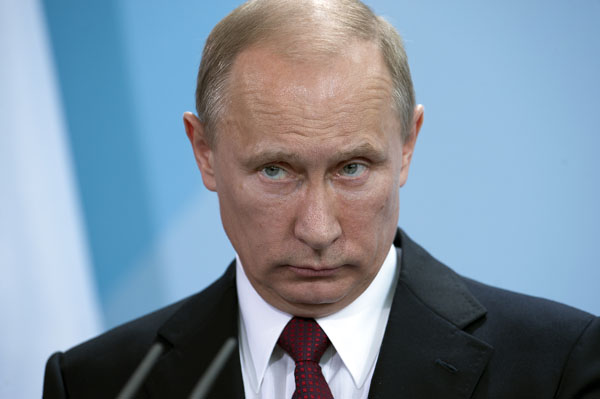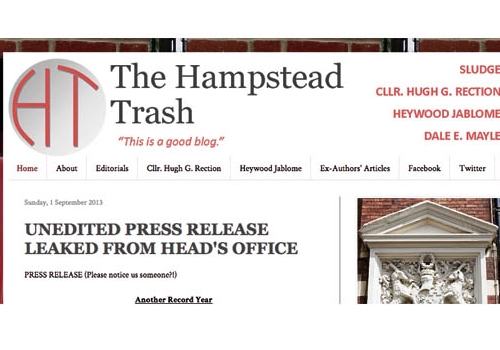15 Oct 2013 | Magazine, Volume 42.03 Autumn 2013
[vc_row][vc_column width=”1/2″][vc_single_image image=”90659″ img_size=”full” onclick=”custom_link” link=”https://shop.exacteditions.com/gb/index-on-censorship”][/vc_column][vc_column width=”1/2″][vc_column_text]
Subscribe to Index on Censorship magazine on your Apple, Android or desktop device for just £17.99 a year. You’ll get access to the latest thought-provoking and award-winning issues of the magazine PLUS ten years of archived issues, including Not heard?.
Subscribe now.[/vc_column_text][/vc_column][/vc_row]
3 Oct 2013 | Europe and Central Asia

There was much raising of eyebrows yesterday when it was announced that Russia’s “International Academy of Spiritual Unity and Cooperation” are putting forward Vladimir Putin as a Nobel Peace Prize nominee. But who are the International Academy of Spiritual Unity and Cooperation.
A source suggests to Index that they are “a typical pseudo cultural organisation” that gets budgets for loyalty to Putin and is ruled by ex-Soviet nomenclature. But judging by this list of presidents, vice presidents, and Heroes of the USSR, they are very, very important people indeed. (Source)
Composition of the Management Board and the Academy
The President
Trepeznikov Shilov
First Vice-President
Gennady Zgersky,
First Vice-President
Alexander Leonidovich Manilow
First Vice-President
Topchiy Sergei Stepanovich
First Vice-President
Paul P. Petrik,
First Vice-President
Taras Shamba Myronovych,
The first vice-president
Sergei K. Kamkov.
Vice – President
Viktor Gorbatko – twice Hero of the Soviet Union (astronaut), B
Vice – President
Mikhail Tikhomirov – Advisor to the President of the Russian Olympic Committee
Vice – President
Aliyev Phase Gamzatovna folk poet of Dagestan,
Vice – President
Sergey Makarov
Vice – President
Malik – Ohanjanian Rafael Gegamovich – Branch Manager in Armenia
Vice – President
Todash Guinn, Head of the Representation in Japan
Vice – President
Yankovskaya Ludmila – Head of Representation in Ukraine
Vice – President
Bishop Vissarion – Head of Mission in Abkhazia, head of the Orthodox Church in Abkhazia,
Vice – President
Stoyan Topalov – Head of Representation in Bulgaria
Members of the Presidium
Sergei Shamba Tarasovich – Minister of Foreign Affairs of the Republic of Abkhazia.
Glebov Vladimir Vladimirovich – Academician of the Academy of Architecture.
Dadaev Gadzhievich Felix – People’s Artist of the USSR.
Antoshkin Nicholas T. – Hero of the Soviet Union.
Bepko Yegorov – Ambassador Extraordinary and Plenipotentiary (MFA).
Yuri Dubinin – Ambassador Extraordinary and Plenipotentiary (MFA).
Primakov Yevgeny Primakov – Ambassador Extraordinary and Plenipotentiary (MFA), President of the Chamber of Commerce of the Russian Federation.
Peter A. Makarov – Project Manager CNNS Russia.
Kabzon Iosif Davidovich – People’s Artist of the USSR.
Rogozhkin Nicholas E. – Deputy. Minister for the Interior Ministry, Interior Troops Commander of the Russian Federation.
Ivan Sergeyev – Ambassador Extraordinary and Plenipotentiary (MFA).
Alexander Golubev Titovich – Chairman of the RAF veterans’ organization.
Kuz’kina Galina – a journalist, deputy. chief editor of the magazine “Our Power.”
Valentin A. Prikhodko – gene. Director of the “Pride of Russia”.
Sergei Baburin, rector of the institute.
Novozhylov Valery Yu – Major – General of the Russian Federation Ministry of Internal Affairs of explosives.
Zalikhanov Michael Chukkaevich – Hero of the Soviet Union, deputy of the State. Duma
Samvel Samvel Grigoryan – Academician of the AHP.
Valentina Tereshkova – the pilot – cosmonaut.
Arthur N. Chilingarov – the hero of the Soviet Union, Hero of the Russian Federation, the deputy of the State. Duma.
Mesenzhnik Jacob Z. – Academician of the Academy of science and business.
Mikhail Vinogradov – Head of Federal Agency for Industry.
Aydarov Letcho Ayubovich – gene. manager of the “Larakas” in Moscow.
24 Sep 2013 | Campaigns, Press Releases
Nearly 40 free speech groups from across the world are calling on the European Union to take a stand against mass surveillance by the US and other governments. The groups have joined a petition organised by Index on Censorship, which has already been signed by over 3,000 people. Celebrities, artists, activists and politicians who have supported the petition include writer and actor Stephen Fry, activists Bianca Jagger and Peter Tatchell, writer AL Kennedy, artist Anish Kapoor, blogger Cory Doctorow and Icelandic politician Kolbrún Halldórsdóttir.
Actor and writer Stephen Fry said:
‘Privacy and freedom from state intrusion is important for everyone. You can’t just scream “terrorism” and use it as an excuse for Orwellian snooping.’
Chief Executive of Index on Censorship Kirsty Hughes said:
‘A few of Europe’s leaders have voiced their concerns about the NSA’s activities but none have acted. We are demanding all EU leaders condemn mass surveillance and commit to joint action stop it. People from around the world are signing this petition because mass surveillance invades their privacy and threatens their right to free speech.’
As well as calling for Europe’s leaders to put on the record their opposition to mass surveillance, the petition demands that mass surveillance is on the agenda at the next European Council Summit in October.
The petition is at: http://chn.ge/1c2L7Ty and is being promoted on social media with the hashtag #dontspyonme
The petition is supported by Index on Censorship, Amnesty International, English PEN, Article 19, Privacy International, Open Rights Group, Liberty UK, Reporters Without Borders, European Federation of Journalists, International Federation of Journalists, PEN International, PEN Canada, PEN Portugal, Electronic Frontier Foundation, PEN Emergency Fund, Canadian Journalists for Free Expression, National Union of Somali Journalists, Bahrain Centre for Human Rights, Catalan PEN, Centre for Independent Journalism (CIJ) – Malaysia, Belarusian Human Rights House, South East European Network for Professionalization of Media, International Partnership for Human Rights, Russian PEN Centre, Association of European Journalists, Foundation for the Development of Democratic Initiatives – Poland, Independent Journalism Center – Moldova, Alliance of Independent Journalists – Indonesia, PEN Quebec, Fundacja Panoptykon – Poland, International Media Support, Human Rights Monitoring Institute – Lithuania, Warsaw Branch, Association of Polish Journalists, The Steering Committee of the Civil Society Forum of the Eastern Partnership, South African Centre of PEN International, Estonian Human Rights Centre, Vikes Foundation, Finland
For further information, please contact [email protected]
6 Sep 2013 | News and features, Politics and Society, Religion and Culture, United Kingdom
Pavan Amara of London’s Camden New Journal has an astonishing story of a head teacher who reported a former pupil to the police, apparently because he student was becoming “more and more enchanted by anti-establishment ways of thinking”.
of London’s Camden New Journal has an astonishing story of a head teacher who reported a former pupil to the police, apparently because he student was becoming “more and more enchanted by anti-establishment ways of thinking”.
Jacques Szemalikowski, head at the Hampstead School in North London, said he was worried that A-Level student Kinnan Zaloom, 19, was “developing into an anarchist” and that he was duty bound to report the teenager to the police for “extremism”. Szemalikowski also contacted Glasgow University, where Zaloom had applied to study, to warn them of his dangerous tendencies.
Szemalikowski told the CNJ:
I must do something. In the last year he has become more and more enchanted by anti-establishment ways of thinking and has even said that there is an inherent risk that every government is corrupt.
Zaloom set up a satirical blog called Hampstead Trash in February of this year. The blog has frequently criticised the way the school is run. Zaloom no longer writes for the blog, having finished school this summer, but it is kept up by current students. It is blocked on the school’s computers.
An editorial posted on the blog last night said in response to the head’s comments to the CNJ said:
You called us dangerous. You called Kinnan “a developing anarchist”. Regardless of Kinnan’s political views and whether he believes in it or not, agreeing with anarchism is not illegal. And we aren’t dangerous. We have never threatened to attack or harm anything or anyone. The only danger is to your ego. We aren’t a paramilitary, we aren’t fighting a dictator who will gas those who don’t agree. All we do is post a few jokes at the school’s expense, often about students and their habits, not at the staff themselves; then occasionally we criticise your and your SLT’s decisions, like the change from 8:40 to 8:35, or giving Sixth-formers late detentions.
Zaloom, who has been banned from the school grounds, told the CNJ: “[W]hat worries me is if I had been a year younger they said they would have expelled me halfway through my A-levels, and that means they would have been prepared to ruin my education because they didn’t like my thoughts.”
Szemalikowski confirmed that he would have excluded Zaloom in that circumstance.
If there’s one consolation to this story, it’s that the police have not been in touch with Zaloom to follow up on Szemalikowski allegations of anarchist extremism.
But it does raise serious questions; if Szemalikowski idea of dangerous anarchism is the notion that governments might be corrupt, how much thought policing is he willing to engage in. Will the young people of Hampstead, home of some of history’s greatest radicals, from Shelley, to Freud to Michael Foot, be allowed think for themselves anymore?
(HT @BrianWhelanHack)


